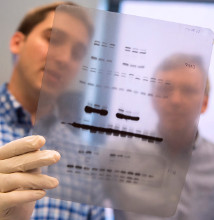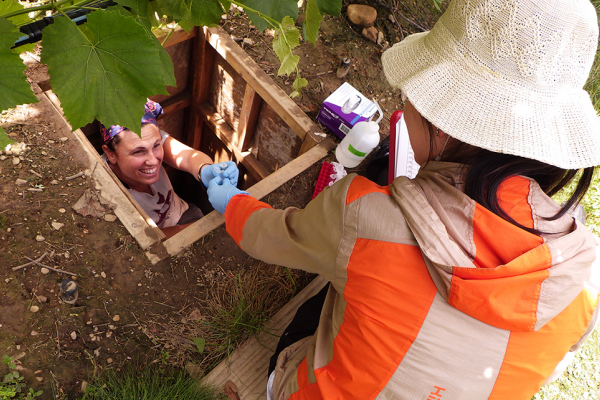Valuing Vegetables: Investigating Broccoli to Improve Gut Health

Why is broccoli healthy for you? Dr. Perdew explains that all cruciferous vegetables (broccoli, brussels sprouts, kale, cabbage, cauliflower) contain an organic chemical compound called “indole glucosinolates.” When that compound is digested in the stomach, it breaks down into other compounds, including indolo[3,2b]carbazole (ICZ).
When ICZ binds to and activates the Aryl hydrocarbon receptor (AHR) in the intestinal lining, it aids in maintaining a healthy balance in the gut flora and enhances host barrier function. This may help prevent diseases (e.g. cancer, Crohn’s) caused by inflammation in the gastrointestinal lining.
“I have a long-term interest in how chemicals in foods impact our health. Broccoli consumption offers significant gastrointestinal protection. I hope this research inspires people to eat more cruciferous vegetables.” – Gary Perdew
The study used mice as models for humans. Intestinal cells in specific mice lines have either a low or a high affinity AHR that can differentially bind ICZ. Broccoli was fed to both groups of mice. They found that when broccoli made up 15% of the diet, the mice that have a lower ability to bind ICZ to the AHR were not protected from a toxic chemical insult. In contrast, the mouse line with the higher ability was protected from the toxic insult.
This research provides evidence that eating cruciferous vegetables can lead to a stronger gastrointestinal tract. It is also helping us to understand how much to eat to gain the benefit. The team’s study extrapolated to humans suggests that a person would need to eat about 3½ cups/day of broccoli to effectively increase AHR activity. Eating raw or slightly cooked cruciferous vegetables is the best way to boost this beneficial impact.
If funding becomes available, the next step is to study how broccoli may protect the gut from additional possible insults such as drug exposure and aging to keep us healthier.
Reprinted from SoAR Retaking the Field, Vol. 3


